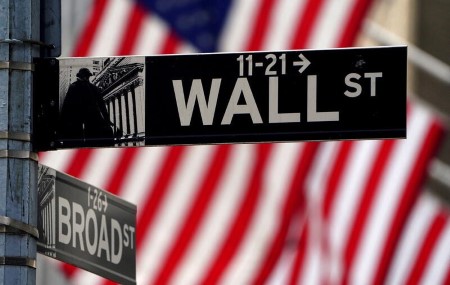




January Economic Update: Growth slows, prices rise
 DOWNLOAD
DOWNLOAD

Inflation Update: Up, up, and away?
 DOWNLOAD
DOWNLOAD

Quarterly Economic Growth Release: Growth takes on a slower pace
 DOWNLOAD
DOWNLOAD


S&P drops on fears of prolonged inflation

NEW YORK, May 12 (Reuters) – U.S. stocks ended a whipsaw session lower on Thursday, as investors fretted inflation could remain elevated for longer than expected, which could prompt the Federal Reserve to hike interest rates ever more aggressively.
All three major U.S. stock indexes seesawed and the S&P 500 settled within striking distance of confirming it entered a bear market after swooning from its all-time high reached on Jan. 3.
The indexes have gyrated wildly in recent sessions, often reversing initial rallies or sell-offs by the closing bell.
“These wild swings of upwards of 2% up or down are extremely rare, and showcase a very fragile investor psyche for that amount of volatility to happen in such a short time frame,” said Ryan Detrick, chief market strategist at LPL Financial in Charlotte, North Carolina. “Continued concerns over inflation, which looks like it has peaked yet is staying stubbornly high, continues to concern investors, pushing the S&P to the brink of a bear market.”
Market leading megacap names, which thrived in the low interest rate environment of the pandemic era, weighed the heaviest.
Market participants were digesting economic data, most recently the Producer Prices report released before the opening bell, which suggested price growth reached its zenith in March.
Even so, the Fed is expected to hike key interest rates by at least 50 basis points at least three times in the coming months, in an effort to toss cold water on demand and rein in soaring prices.
The U.S. Senate on Friday confirmed Jerome Powell for a second term as Fed Chairman.
The move “was widely expected and it opens the door for the Fed to continue to battle the 40-year inflation highs, with many more interest rate hikes likely coming this year,” Detrick added.
Geopolitical tensions surrounding Russia’s war on Ukraine were dialed up by Finland’s announcement that it would apply for NATO membership, with Sweden expected to follow suit. The Kremlin vowed to retaliate.
The conflict, dubbed by Russian President Vladimir Putin as a “special military operation,” has fanned the flames of inflation by pressuring global energy and grain supplies.
According to preliminary data, the S&P 500 lost 4.21 points, or 0.09%, to end at 3,931.48 points, while the Nasdaq Composite gained 6.99 points, or 0.12%, to 11,371.23. The Dow Jones Industrial Average fell 88.75 points, or 0.28%, to 31,745.36.
Earnings season is nearing the final stretch, and according to the most recent data, 79% of the S&P 500 companies who have posted results delivered better-than-expected earnings, according to Refinitiv.
Analysts now see aggregate first-quarter S&P 500 earnings growth of 11%, up from 6.4% at quarter-end, per Refinitiv.
Shares of luxury accessories company Tapestry Inc. (TPR) surged after expressing confidence in a rebound in Chinese demand once COVID restrictions are lifted.
Walt Disney Co. (DIS) dipped following the media company’s disappointing quarterly report.
(Reporting by Stephen Culp; additional reporting by Devik Jain and Amruta Khandekar in Bengaluru; Editing by Chizu Nomiyama and David Gregorio)
This article originally appeared on reuters.com





 By Reuters
By Reuters